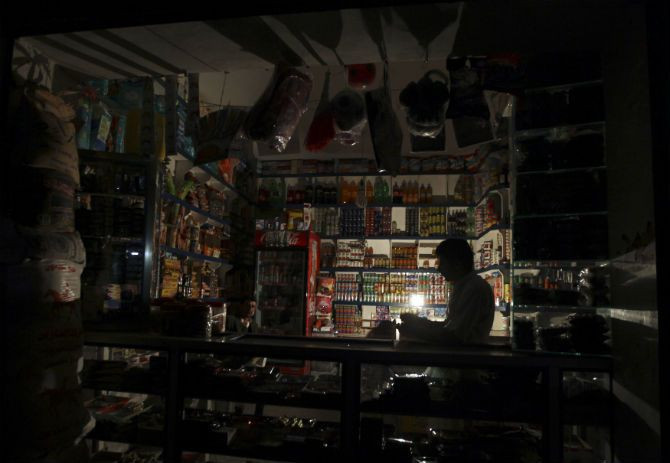
A massive blackout left as many as 53 million Brazilians in the dark late Thursday and early Friday, the latest in a string of energy shortages that have raised questions about whether Brazil's infrastructure is keeping pace with economic growth.
Officials said a fire in a substation in the Amazon knocked out the whole electricity grid of northeastern Brazil in the region's worst blackout since 2001. The outage lasted up to four hours in some places.
In the city of Recife residents left without air conditioning and ventilators complained they could not sleep due to the heat and mosquitoes.
"There was a total collapse of the northeastern grid," acting Energy Minister Marcio Zimmermann said.
The government has not yet established the causes of a series of recent blackouts that have undermined confidence in Brazil's electrical system, Zimmermann said. He called the second emergency meeting in five weeks to discuss the problem.
The power shortages have added to concerns that the South American country will not be ready to host two major global sports events, the World Cup soccer tournament in 2014 and the 2016 Olympic Games.
The power outage, which affected 11 Brazilian states in the northern regions of the country, follows two other blackouts in as many months that affected millions of customers across the nation.
"We are taking all the corrective and preventative measures ... to minimize this type of occurrence, which is dramatic for all of us and principally for consumers," Hermes Chipp, head of Brazil's National Electric System Operator, told the Globo television network.
Brazil went through a so-called "blackout crisis" in 2001 and 2002 as a drought limited the output of hydroelectric dams. In response, the government forced electricity cuts in certain regions for hours at a time, severely crimping economic growth.
While Brazil has invested heavily in electricity generation since then, it still has a long way to go, with the country planning to build as many as 48 new hydroelectric plants by 2020 to keep up with the energy demands of rapid economic growth.
Energy policy has been at the forefront of government efforts to boost sluggish growth in Latin America's largest economy. Last month President Dilma Rousseff announced a major cut in electricity taxes in a bid to help boost industry and address the so-called "Brazil cost" - the mix of taxes, high interest rates, labor costs, infrastructure bottlenecks, and other issues that have caused the economy to become less competitive.
But critics say lowering energy costs for consumers could discourage private investment needed to increase Brazil's generating capacity. They say electricity companies have not invested enough in generation and transmission lines since they were privatized over a decade ago.
© 2025 Latin Times. All rights reserved. Do not reproduce without permission.




